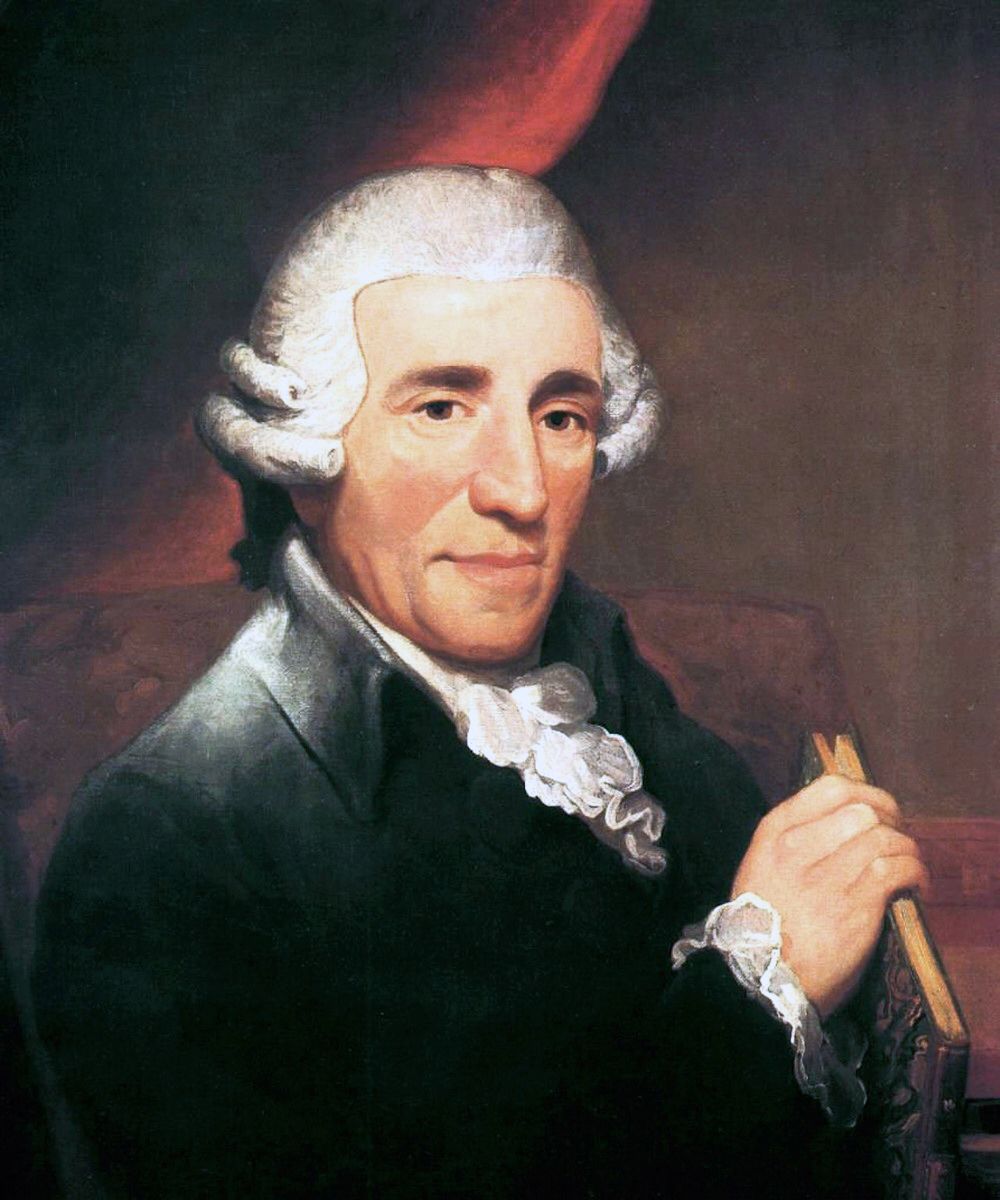This article was updated in March 2025

1 Born to a wheelwright (and occasional harpist) Mathias Haydn, the only artefact he retained all his life was a wheel-maker's hammer used by his father. He kept this in a specially made ornate box.
2Haydn's childhood nickname was "Sepperl". Although his full name was Franz Joseph Haydn, he didn't use the name Franz, which is therefore omitted in most texts nowadays. He also never spelt his name 'Josef'.
3As a small boy he was a chorister at St Stephens with a beautiful high, clear voice. Castrati were in fashion, and one day his father got wind that this was what was intended for his son. He rushed to the capital and quizzed Joseph circuitously to find out if he had been “done”. To his enormous relief, he discovered that he had not, and he made sure that they did not do so! When Haydn's voice broke he was unceremoniously thrown out of the Kapellhaus and was left homeless and destitute.
4Haydn was a good friend of Mozart, in whose house the two musicians used to play in string quartets, with Haydn playing the violin and Mozart the viola (which has to rate as the most outrageous concentration of musical talent ever). When Haydn was setting off on his trip to London, Mozart is reputed to have asked Haydn "How will you survive? You don't speak the language", to which Haydn replied, "Everyone speaks my language, it is the international language of music." He might also have mentioned that most of the court establishment in England was German anyway...
5At the Esterházy Palace, Haydn insisted on ripping up the beautiful marble floor of the concert room and replacing it with a wooden floor, giving it a wonderful acoustic. The flooring in the Palace's Haydn Hall is the original.
6Haydn liked wine: he insisted that part of his salary each year was paid in it!
7Haydn's relationship with his wife was not close, possibly in part because she did not sufficiently respect his work: she used to rip up his scores to use the paper as hair curlers! His early chronicler Carl Ferdinand Pohl wrote in 1878: “With the exception of the woman to whom he was married - a person, who in his later years was perhaps the only being whom he openly and honestly hated - Haydn positively worshipped women...”
8He lived at Esterházy from 1761 to 1790 when the Esterházy fortunes changed and they had to economise. They let the orchestra go but agreed to continue paying Haydn's salary so that he could spread the fame of their name by always giving his title as 'Kapellmeister of the Esterházys'. In London he was treated royally, with the Prince of Wales bowing to him.
9On his return to Austria, his position in the Esterházy family altered radically. He left as a high-ranking servant and returned as family, eating with the Prince.
10During his two stays in London Haydn composed 250 pieces! King George III and Queen Charlotte offered Haydn a flat in Windsor as an inducement to stay, but Haydn declined and returned to Hamburg in 1795.
11The "Oxford" Symphony was actually written for performance in Paris but got its name when it was performed on the occasion of Haydn's honorary doctorate from Oxford University.
12Haydn composed the Emperor's Hymn to Francis the Kaiser (Gott erhalte Franz den Kaiser), which was the national anthem of Austria until 1918 and today is the national anthem of Germany.
13During Haydn's lifetime, his brother Michael was considered a better composer of church music.
14Haydn's youngest brother, Johann Evangelist Haydn (known as "Hansl") was a tenor and also worked for the Esterházy family. Apparently, he wasn't a very good singer and was probably kept on as a favour to Joseph.
15First performed in the spring of 1801, one of the early performances at court of Die Jahreszeiten (The Seasons) featured the Empress, wife of Franz I, in the soprano role.
16In May 1809, when Napoleon's armies captured the city of Vienna after an intense bombardment, Napoleon himself ordered that an honour guard be placed outside the home where the master composer lay on his deathbed.
17Mozart's Requiem was played at Haydn's funeral.
18After his death, Haydn's head was stolen by two respected citizens who wanted to prove the connection between skull measurements and genius. Several attempts were made to reclaim the head from Josef Karl Rosenbaum's wife, but after two substitutions were made, the Esterházy family gave up and buried the head given to them. Haydn's head was kept for 150 years at the Musikverein in Vienna in a glass bubble. In 1954, the head and body of Haydn were reunited, and his remains were transferred to the Bergkirche in Eisenstadt.
19Johannes Brahms, who was unable to afford his own home, slept in the Musikverein. He was in the habit of taking out Haydn's head at night when he was composing, and putting it on his desk for inspiration.
20The 100th anniversary of Haydn's death was celebrated in 1909 by a group of French composers who composed homages to Haydn in music, including Debussy's Homage à Haydn, Ravel's Menuet sur le nom de Haydn and Dukas's Prélude élégiaque.
Thanks to Dr. Franz Patay, co-ordinator of Haydn Year 2009, for contributing much of the material for this article.


